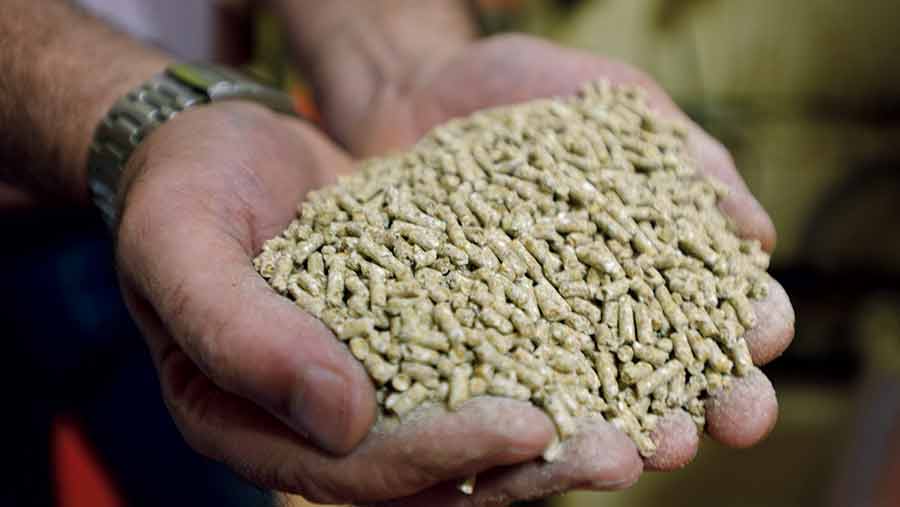Tips for settling disputes when buying poultry feed
 © Jason Bye
© Jason Bye When purchasing feed, whether it be a generic ration or a bespoke formulation, it is highly likely that the supplier will seek to incorporate into that agreement its own standard terms and conditions (the “small print”).
Even if these terms are identified, it is not uncommon to entirely disregard them before placing an order.
Typically, it is only when something has “gone wrong” that any need arises to consider the terms of the feed supply contract.
At this point, you will likely discover that the supplier has attempted to minimise its liability. Typical clauses will cover consequential losses only, or the value of the feed supplied (or simply agree to replace it).
See also: Latest prices and trends
It is not uncommon to place obligations upon the purchaser to check that the feed is acceptable and free from defect at the point of delivery.
Fit for purpose
Most will be familiar with the phrases “fit for purpose” and “of satisfactory quality” and adopt these as the foundation upon which a feed supplier should be held accountable for any feed-related issue.
In fact, these phrases can be found at s14 of the Sale of Goods Act 1979, with reference to the terms relating to “quality or fitness”, to be implied into contracts for the sale of goods. However, these factors will be augmented by the supplier’s small print.
While any exclusion or limitation clause relied upon by the supplier will need to be “reasonable” to be enforceable, it is inevitable that the supplier will seek to rely upon such a clause in the first instance as a means of limiting exposure to any claim.
Quality control
In practice, your feed supplier will often simply deliver your order and load it directly into your feed bins (no doubt on top of the remnants of previous feed).
There may be a retained sample, but do you know where it came from? Do you know whether any sample is reflective of the entire load delivered, particularly where that load has been mixed in a number of batches at the supplier’s feed mill?
The assumption may be that all reputable suppliers have rigorous quality control procedures, both in terms of the raw materials (including the quality of any cereal crop used) and the end product, to ensure that the feed delivered is safe to be fed to your birds.
But how many ask their supplier for details of their quality control processes. Or what steps have been taken to ensure that their feed is “safe”, conforms with the manufacturing tolerances required by law or, in the case of a bespoke ration, is consistent with your formula?
Impurities
The factors to be considered are not only those that relate to pathogenic organisms, such as mycotoxins.
Other innocuous ingredients may be in the feed which could, if found in high enough concentrations, be unsafe for consumption by the birds, have a significant impact upon the birds’ development and, ultimately, performance.
Bear in mind that identifying the link between the feed and the developmental issues identified may not be easy and could even require specialist analysis from an avian pathologist.
Of course, you will usually have insurance to help guard against this sort of situation. However, even if insurance is in place, it may be the case that some of these issues are not ultimately covered by your policy.
It is not uncommon for certain diseases and even episodes of “poisoning” to be expressly excluded from policies of insurance, which may leave you to “fight” your supplier alone in circumstances where your insurance policy does not respond.
It could even be the case that the supplier’s own explanation as to the cause of the loss suffered relates to an insured loss, while your claim against the supplier relates an uninsured loss, leaving you with potential claims against both your insurer and the supplier.
Six tips to help when buying feed
1. Ensure that you understand the terms upon which you purchase your feed. What losses are excluded? What is the limit of the supplier’s liability? What obligations do you have to check that the feed is safe or report an issue?
2. Can you agree a bespoke supply contract giving you more protection or incorporate your own standard terms and conditions of purchase?
3. Do your due diligence on the supplier. Price should not be the only consideration. What quality controls does the supplier have in place? For example, will your supplier use a mycotoxin-binding agent if it suspects that there may be an issue with a particular crop?
4. Check your own quality control procedures. Could you increase the numbers of samples taken and vary the location in a load from where those samples are taken?
5. Check your insurance cover. What is covered and what is excluded? Can you obtain additional or alternative cover? This will be increasingly important when the Insurance Act 2015 comes into force later in the year.
6. Keep detailed records, both before and after any problem with feed. Be ready to demonstrate the causative link between the feed delivered and the damage caused, reducing the possibility that the problem can be “blamed” on some other issue.
Nick Booth is senior associate at Harrison Drury Solicitors
